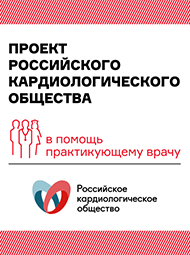Beta-blockers during acute stroke phase reduce mortality, pneumonia risk
Patients who initiated beta-blocker therapy within 3 days of stroke onset had a lower risk for mortality at 3 months, according to recent results.
Beta-blocker therapy also was linked to reduced risk for nosocomial pneumonia when initiated before or within 3 days after stroke onset.
The analysis included data from 5,212 patients with ischemic stroke. Of those, 22.2% received beta-blockers before stroke and 4.7% initiated beta-blockers within 3 days of stroke onset. The mean age of the cohort was 67 years and 54.3% were men.
Overall, 17.5% of patients died; 18.8% were on prestroke beta-blockers and 17.2% were not on prestroke beta-blockers. After adjustment for confounders, beta-blocker use before stroke was not associated with mortality risk (adjusted RR = 0.95; 95% CI, 0.81-1.1). Separate analysis of beta1-selective and nonselective beta-blockers yielded similar results. However, initiation of beta-blockers within 3 days of stroke onset was significantly associated with reduced mortality risk (adjusted RR = 0.63; 95% CI, 0.42-0.96). Separate analyses of selective and nonselective beta-blockers indicated lower mortality risk with beta1-selective beta-blockers (adjusted RR = 0.48; 95% CI, 0.28-0.83), but not with nonselective beta-blockers (adjusted RR = 1.12; 95% CI, 0.61-2.13).
Favorable functional outcome, defined as Rankin scale score of 0 to 2, was reported in 58.2% of 5,052 evaluable patients. Regardless of time of treatment initiation, beta-blocker use was not associated with functional outcome, as indicated by a score of 0 to 2 on a modified Rankin scale (adjusted RR = 1.02; 95% CI, 0.9-1.12 for prestroke; adjusted RR = 0.96; 95% CI, 0.8-1.15 for during stroke).
About 8% of patients developed pneumonia within 10 days of stroke onset. Risk for pneumonia was significantly lower with beta-blocker use, whether initiated before stroke (RR = 0.77; 95% CI, 0.6-0.98) or during the acute phase (RR = 0.49; 95% CI, 0.25-0.95).
“Despite negative early trials with beta-blockers in acute stroke, we suggest that randomized trials investigating the potential of beta-blockade in acute stroke may be warranted. However, off-label experimental use in clinical practice should be avoided until the safety and feasibility are proven elsewhere,” the researchers concluded. – by Adam Taliercio
Disclosure: The researchers report no relevant financial disclosures.
Source: www.healio.com






